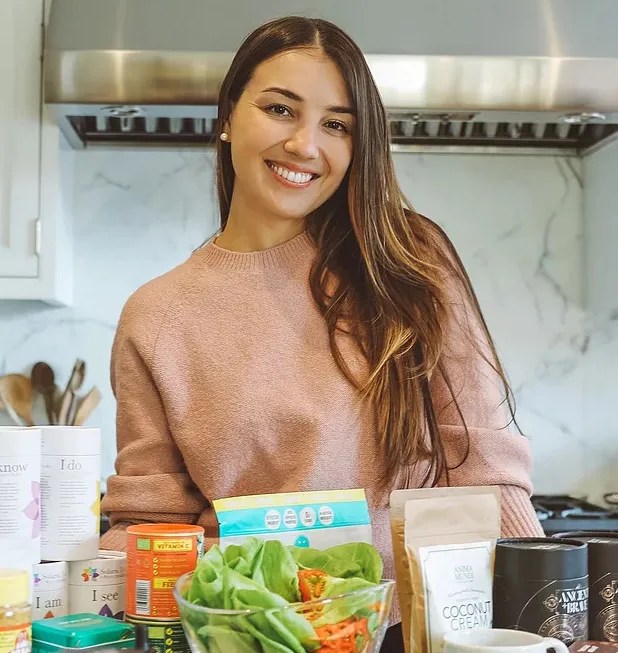Here’s What You Need To Know:
- For the first six months of life, a baby should only drink breast milk or formula.
- You can introduce your little one to sips of water once they are eating solids.
- Do not go over 4oz. of water a day. Anything higher can lead to water intoxication.
- Try to avoid juice as much as possible.
- Talk to your pediatrician if you’re worried that your baby may be dehydrated. Signs include Less than 6 wet diapers within 24 hours, dark yellow colored urine, tearless crying, and dry skin/lips.
Uncharted Waters
For the first six months of life, a baby should only drink breast milk or formula. It has all the hydration and nutrition they need. Even once you start giving them solids around six months old, breast milk and formula are the most important fluids. This stays true up to their first birthday. You can, however, introduce your little one to water once they can eat solids.
Give your baby sips of water here and there to get them used to it. Do not go over 4oz. of water a day. Anything higher can lead to water intoxication.
Below are the top questions we get about introducing water.
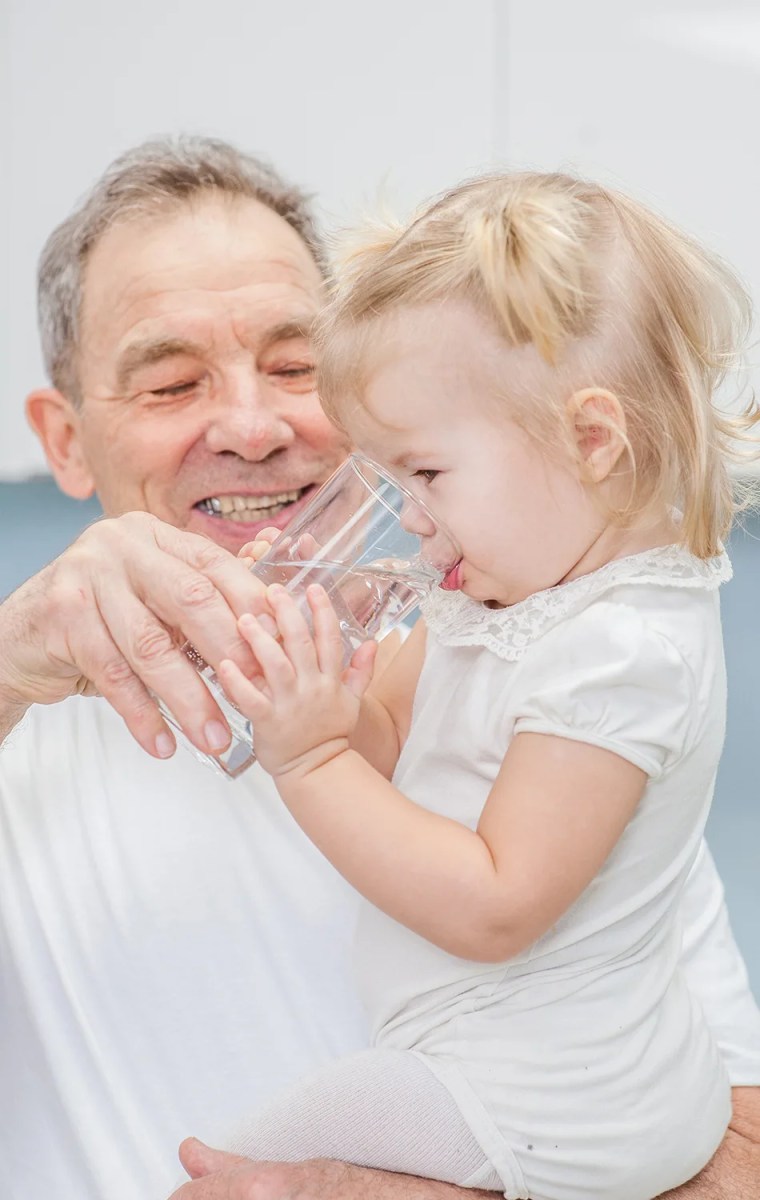

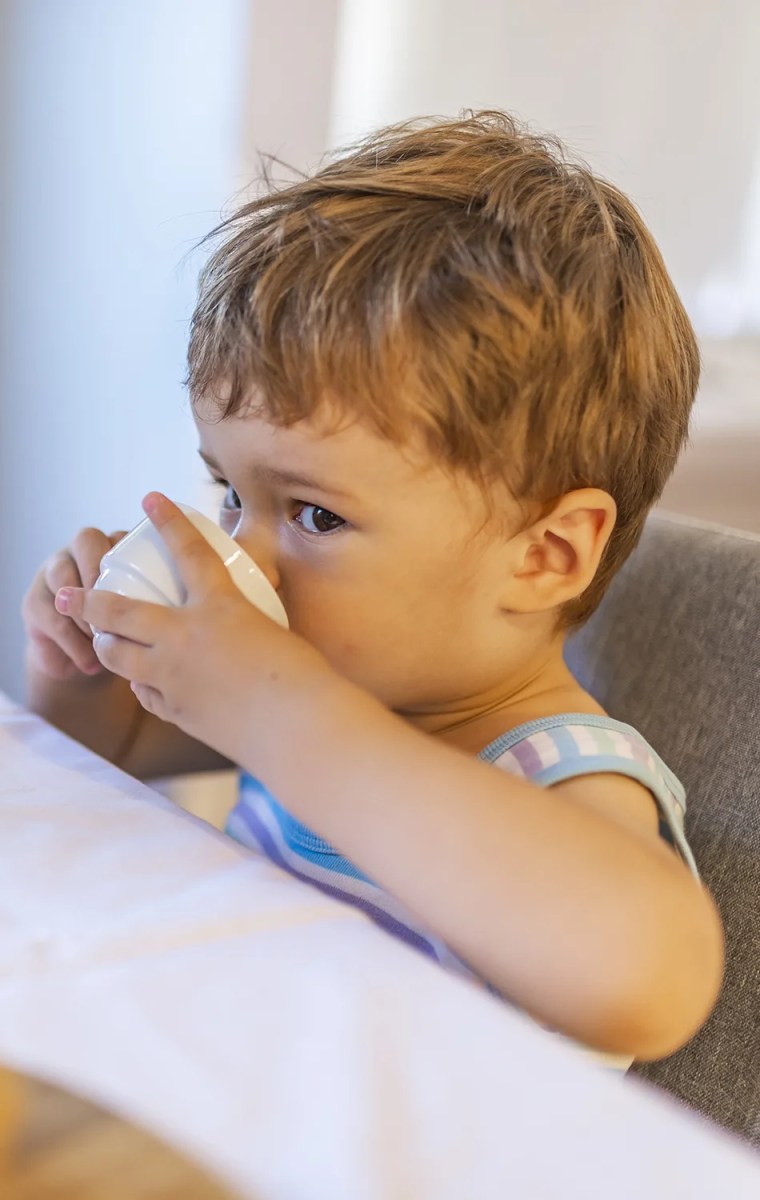
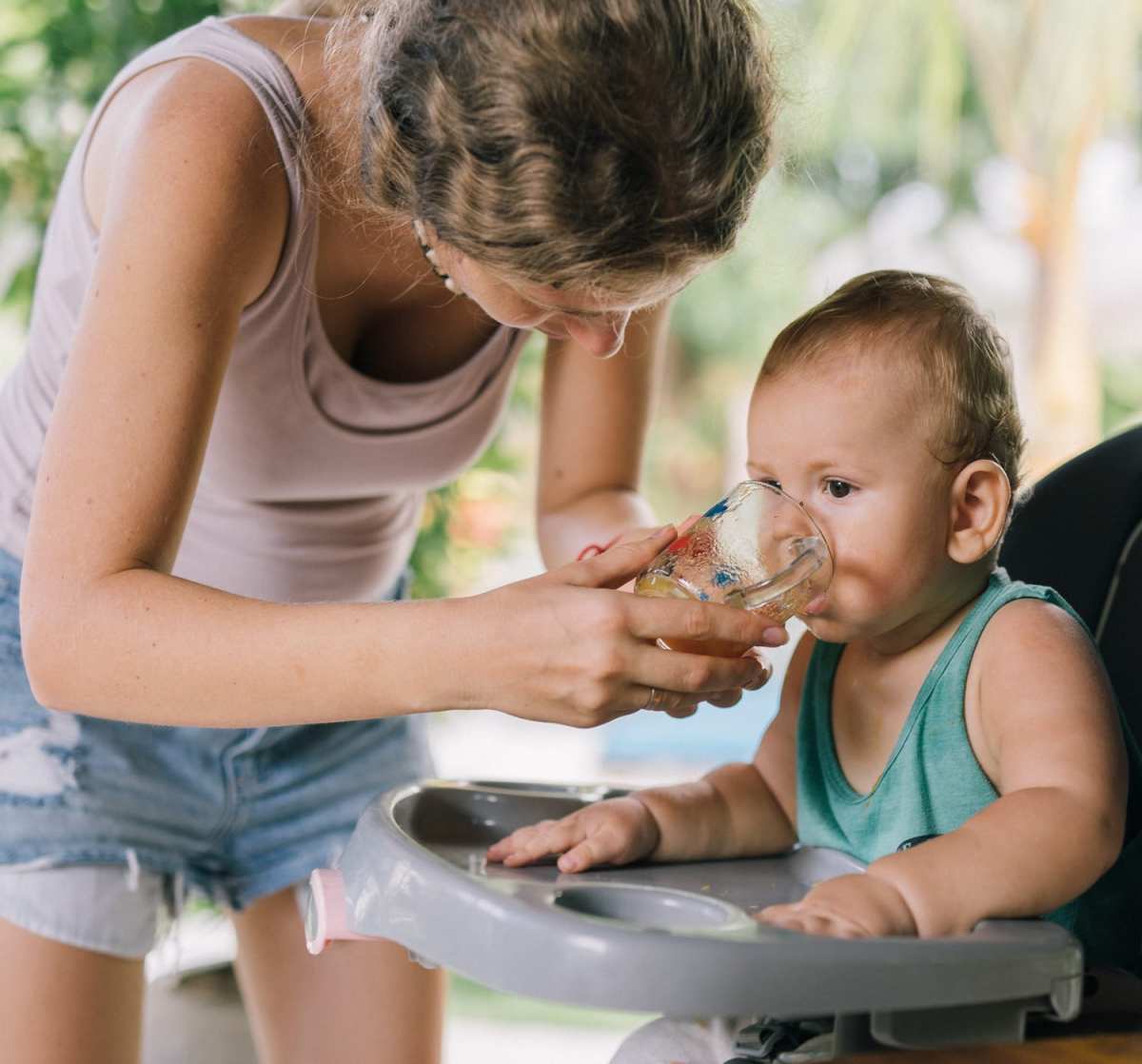
Is breastmilk or formula hydrating enough?
Yes! Breastmilk and formula provide adequate hydration for babies in the first 6 months of life. There is no need for additional fluids, such as water, before the introduction of solid foods. Babies should continue to drink breastmilk or formula until the age of 1, at which point whole milk and water can be regularly consumed. They will also receive hydration from the natural water content of fruits and vegetables.
When can I introduce water?
You can begin to introduce water as soon as your baby begins solid foods. Once your baby is ready for water, you can begin slowly introducing it by offering it to them in a baby bottle, or in slow-flow sippy cup. You can also offer it to them in an open cup if they are ready. Make sure to carefully supervise baby to make sure that they don’t drink too much at once.
How much water can they have?
Since milk will still be their primary source of fluids, they don’t need much water. In fact, too much water can be a bad thing. In the beginning, they may only take 1-2 sips. From then on, you can offer them water. However, don’t worry if they reject it. As with rejecting food because they aren’t hungry, they may reject water simply because they aren’t thirsty.
What about juice?
Try to avoid juice as much as possible. Juice is sugary which has health ramifications, including raising blood sugar, increasing the risk of obesity and the potential to decay the teeth.
How do I spot dehydration in my baby?
The most common scenario in which your baby would be dehydrated is if they’re sick with either diarrhea, vomiting or are refusing to eat/drink milk because of a sore throat. Some signs of dehydration include:
- Less than 6 wet diapers within 24 hours
- Dark yellow colored urine
- Tearless crying
- Dry skin / lips
- Lack of interest and energy
Remember, talk to your pediatrician if you’re worried that your baby may be dehydrated.
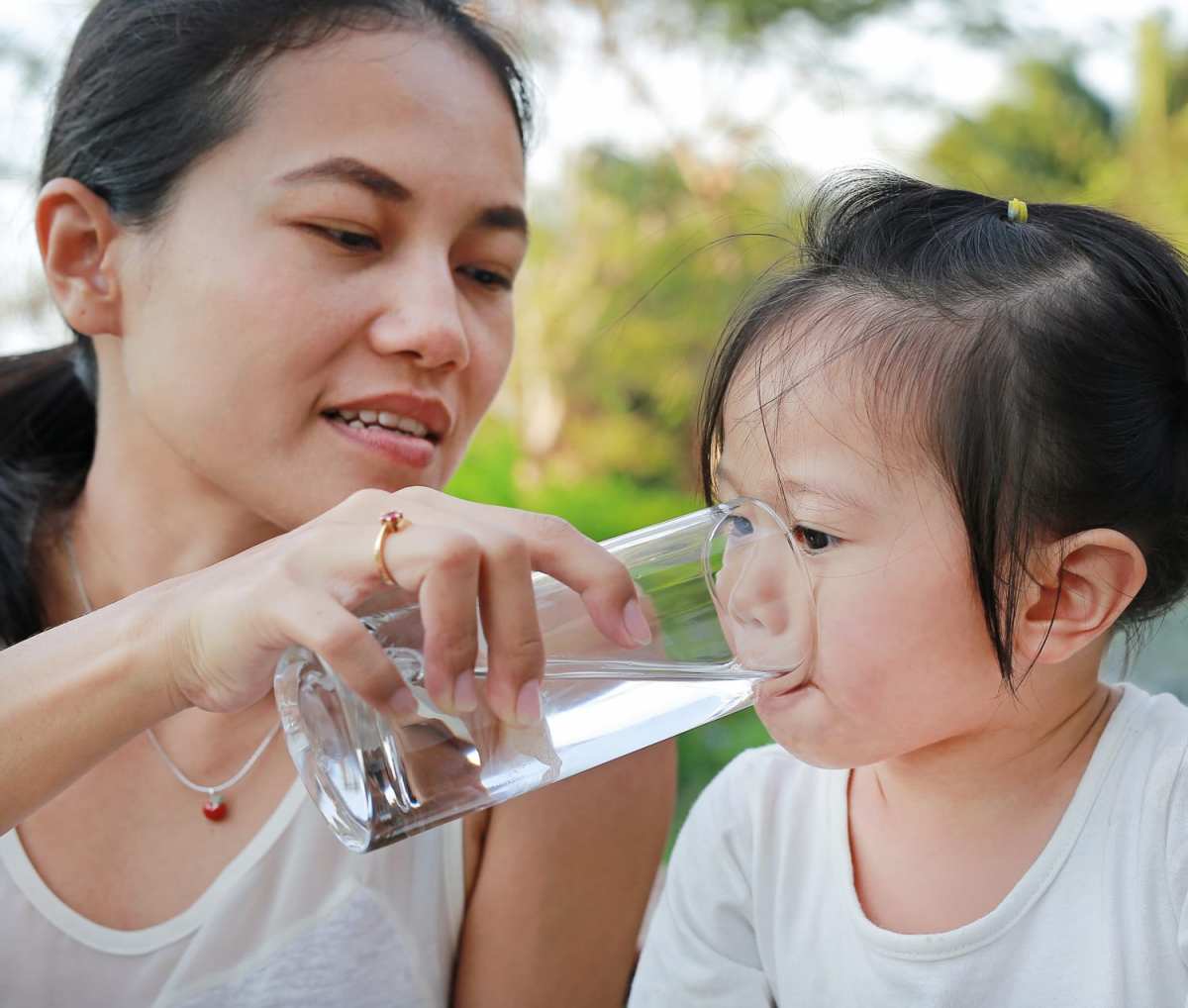
My little one loves peanut butter – but they attend a nut-free school. What are some alternatives?
If your little one is old enough to attend daycare or preschool, odds are their school has a strict no-peanut rule. There are plenty of alternatives out there on the market. Wowbutter, Sunbutter, and Sneaky Chef No-Nut Butter are all good options.
Summary
For the first year of life, a baby does not need water. They get all the hydration they need from breastmilk, formula, and purees. Therefore, water before 12 months old is optional. If you decide to give your baby water, only offer it in a straw or open cup for proper oral development. Giving your little one too much water (more than 4oz. a day) can result in a dangerous electrolyte imbalance and displace vital nutrients.
Water is a very thin liquid that is difficult to drink at first. Do not be surprised or worried if your baby coughs a little when first learning to drink it.
